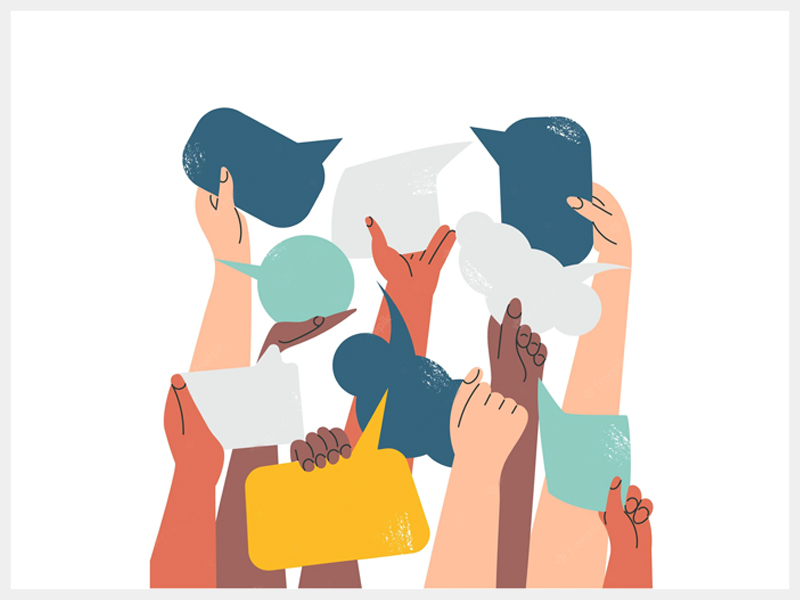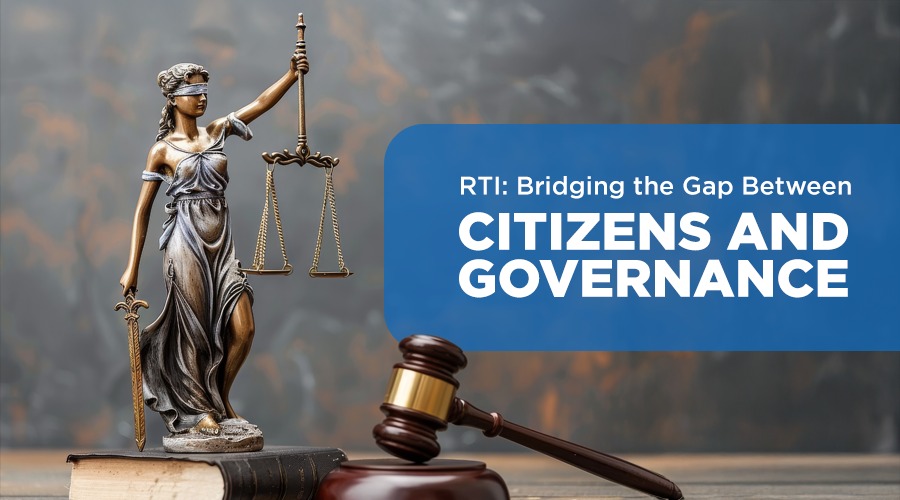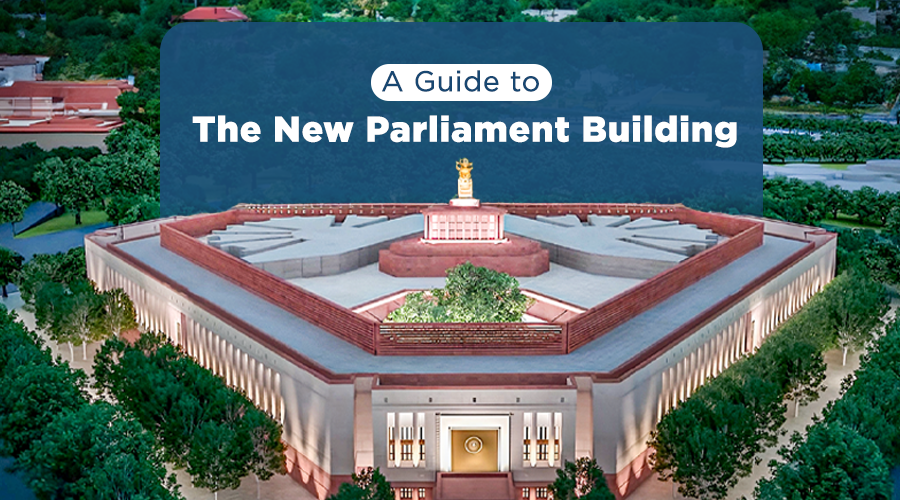“Whenever the people are well-informed, they can be trusted with their own government.”
– Thomas Jefferson
Civic sensibility extends beyond simple road maintenance and planting trees. It is a holistic idea of becoming a reflection of responsible and a liable citizen. Imagine a city where everyone has a sense of responsibility for the economy, ecology, and society. They are informed, engaged, and accountable. They encourage a thriving democracy since they frequently pay attention to civic issues like sanitation, utilities, safety, etc. and are always aware of their rights. Imagine a city with residents who are not civically literate; they would be less responsible and only consider their own interests. A nation cannot prosper if its residents lack civic literacy and other skills, just as a body cannot operate with dormant cells and organs.
Civic Literacy refers to the knowledge and understanding of actively participating and initiating a change in the community in order to develop a greater society. Civic Literacy primarily forms a foundation through which a democratic society performs. Simply, it formulates ample avenues for bringing peaceful change. Strong civic literacy skills get potential in the voice raised while making it heard by all levels of government.
Interestingly enough, Civic Literacy is not confined to participating in the elections, politics, or society; it merely girdles active participation in classes, groups, organisations and neighbourhoods. It boasts knowledge about public processes and discussions on trending issues. Civic practices such as voting, jury service, volunteering, and collaborating are primarily devised to improvise society. Indeed, Civic Literacy enables the citizens to not only explore how others participate but also disseminate knowledge about participating and gaining informed operations by oneself.
Importance Of Civic Literacy for Nation Building
A democratic society’s foundation and a citizen’s source of power are civic literacy and civic engagement. Civic literacy requires us to focus on the significance of information and comprehending the legislative process, being able to engage in civil life, and realising the local and global ramifications of civil decisions in this age of digitization and urbanisation. While civic literacy’s purpose is to inform citizens about what is right for their communities and themselves, it is unquestionably crucial for the younger generation to develop the moral sense, instil patriotism and social skills essential to engage in society. Listed below are the importance of civic literacy.
- Civic Literacy commissions us to be well-acquainted, proactive citizens while providing an opportunity to bring a valuable change in the surrounding world.
- It plays a crucial role in any democracy as it gives citizens valuable knowledge about the ascent of democracy and the constitution.
- Civically literate citizens are well-informed about their voting rights and are also able to discover the political issues that are pretty crucial to them.
- Civic Literacy enables citizens to make a positive change in the political and environmental scenario around them in the social ambit.
- The negative and divisive political campaigning does not influence civically literate citizens. However, they are more susceptible to others and their political viewpoints.
- A broader forthrightness and acceptance of distinct political perspectives results in a type of politics where enhanced voices and viewpoints are accepted without discrimination.
Civic Literacy: Education Beyond Politics and Voting
“Civic Literacy” reflects the essence of politics and voting, but in reality, it is not just about it. The concept is more than what usually gets perceived. Civic Literacy enables the citizens to follow the federal, state, and local government laws while providing freedom to raise a voice if we disagree with a law or think it could be improvised.
Most countries worldwide take the coordinated and sustained approach to building civic literacy. They are spreading awareness about how the unrestricted flow of false information, biasedness and criticism threatens democracy. Through Civic Literacy, countries like Canada have shared a thought that the only safeguard against damaging democracy is forming an “engaged, discerning, and resilient, democratic public.” They are taking a more coordinated and sustained approach to formulating civic literacy amongst generations. Similarly, Tennessee Immigrant and Refugee Rights Coalition has performed tremendously to empower immigrants and refugees over Tennessee to formulate a unified voice while defending their rights and being confessed as optimistic developers to the state.
Civic Literacy Scenario in Bengaluru
Bengaluru has always enjoyed a high middle class action, expression and engagement in many civic issues; solid waste management being a prominent one. One of the first programmes dates to the early 1990s, when Kalyan Nagar residents became one of the first few neighbourhoods to take care of managing their garbage autonomously until 2020.
The implementation of the Karnataka Plastic Ban in 2016 saw the activation of neighbourhood citizen groups that were motivated by Yelahanka and HSR Layout, providing yet another outstanding example of widespread community action. To interact with the officials and elected representatives, a large-scale movement was created.
In Bangalore, an NGO called Janaagraha Centre for Citizenship and Demography initiated a civic learning program called Bala Janaagraha, amongst children in order to create awareness about bringing positive transformation in them while developing them into informed, responsible, and active citizens.
Moreover, the Karnataka government had launched a literacy program in prisons on November 1, 2021. In this program, prisoners would be taught Civic Literacy and other subjects to become good citizens.
Media and Digital Literacy Are Bringing Tremendous Transformation in Civic Literacy
With the advent of technology and its boom in the recent past, distinct modes like media literacy and digital literacy are educating citizens through critical thinking and digital communication tools, respectively. Where media literacy discerns media comprehensively, digital literacy always focuses on understanding the mechanisms of digital media, like social media platforms, websites, and mobile applications and how they interact with society. These two forms of literacy find their roots back to the broader umbrella of civic literacy.
Both media and digital literacy are distinct, but they play a crucial role in the current media climate. These are developing learning information and Civic Literacy skills while engaging with online media.
Civic Literacy Go Hand-In-Hand With Sustainability
Civic literacy is in the DNA of sustainability in many ways. It increases people’s knowledge, abilities, and motivation to help them make better decisions and create healthier communities that can better handle the issues in the areas of the environment, the economy, and society. In other words, civic literacy controls the very fabric of society, identifying and fostering a notion of sustainability and a harmonious coexistence between humans and the environment. A person with civic literacy would, for instance, be aware of all the resources and things that are bad for the environment and might not use them. Second, they would be aware of the civic duties and not hesitate to tell authorities about issues with public facilities or social concerns. This is how civic literacy forms a stepping stone towards 360 degree sustainability.
Key Takeaway on Civic Literacy
Civic Literacy is about far more than superficial knowledge acquisition as it involves formulating citizens’ capacity for engaged citizenship and their potential to react in manners consistent with democratic values. It is pretty essential to develop an initiative to discover effective civic literacy programs in India while developing a set of civic literacy measures. Schools and colleges must support creative learning programs about civic literacy in order to create quality learning environments required to support the development of students while spreading massive knowledge about civic rights and practices amongst them.
An awakened and dynamic civil society not only guards against the misuse or excessive concentration of power by the state, but also acts as a public classroom where citizens can learn about democracy and personal responsibility. Citizens who possess the necessary information, abilities, and attitudes are essential to the maintenance of democracies and sustainability. B.PAC has embarked upon a journey in an endeavour to forge civically literate Bengaluru. Through various citizen-centric initiatives, we provide a platform where citizens, elected representatives and government bodies can work in conjunction with transparency to ensure a brighter Bengaluru and healthier democracy. Learn more about B.PAC and its initiatives: https://bpac.in/
Sources:





